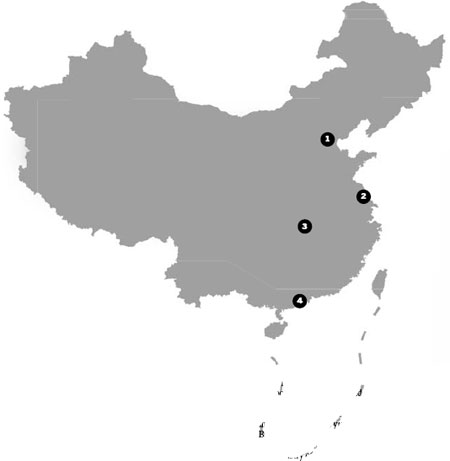
1.Beijing
IP strategy priority on work agenda
For the first time, implementation of the national intellectual property (IP) strategy is listed as a priority on the central government's current work agenda, according to a senior official.
Building an innovation-friendly environment that protects IP is increasingly important to economic transformation, especially over the next five years, Tian Lipu, commissioner of the State Intellectual Property Office (SIPO), said at a April 20 ceremony to launch the nation's annual week-long IP campaign.
Following the ceremony, a high-level forum discussed IP's role in strategic industries, technological innovation and trade, as well as in the service sector.
This year's forum co-hosted by SIPO, the National Development and Reform Commission and the ministries of commerce, science and technology, and industry and information technology attracted nearly 300 participants.
More scrutiny of online sales
Nine central government departments have announced an increased effort to fight online counterfeits and piracy.
Designed to further strengthen a crackdown on Internet IP infringements mounted at the end of last year, the April 21 announcement urges local authorities across the country enhance supervision of online shopping portals.
Websites listed - including Taobao, Eachnet and Paipai - need to establish a trade and patent inquiry system and use technical means to screen out false information and goods, according to the notice.
(Xinhua News Agency)
Awareness forum for students
An intellectual property forum was held at Peking University on April 23 as a continuation of an effort begun in 2008 to publicize IP knowledge among college students, according to organizers.
This year's event attracted an audience of around 300 students. Government officials and leading law scholars shared their insights into IP issues with the audience.
In a keynote speech, Ma Weiye, director-general of patent management department of SIPO, called for an IP-friendly culture that includes "the sum of all intellectual phenomena".
"It mainly refers to a social atmosphere that encourages intellectual property protection," he explained.
The event was organized by six leading universities including Peking University, Beihang University, Beijing Normal University and the Beijing Institute of Technology.
2.Jiangsu
Music brings small site big trouble
The Chinese mainland's first criminal case for violating music copyrights is attracting widespread attention as a precedent for enforcing compliance on small, privately run websites.
The defendant surnamed Wang, who once worked in network management at an Internet firm, started a music portal with rented severs four years ago offering about 100,000 songs for download, most of them without authorization, according to court records.
The portal's business expanded with daily visits growing from fewer than 100 to more than 10,000.
The rising number of users attracted advertisers, earning Wang more than 4,000 yuan a month.
But not only advertisers were paying attention. The International Federation for the Phonographic Industry (IFPI) wrote to the Ministry of Culture requesting an investigation of the website.
The provincial cultural department collected evidence requested by the IFPI, which listed 667 songs illegally offered for download.
Wang was convicted of criminal copyright infringement and sentenced to one-year's probation.
(China.com.cn)
3.Hubei
5b yuan in collateralized loans
Hankou Bank has signed an agreement with the intellectual property office of the Wuhan city government pledging at least 5 billion yuan ($765.8 million) in credit over five years using intellectual property as collateral.
The deal follows the office's cooperation with other banks that together will offer nearly 10 billion yuan in credit lines for IP-collateralized loans.
To promote commercialization of intellectual property, local authorities designated six organizations to evaluate intangible assets and helped build an IP trade center.
Last year alone, transactions in patents, integrated circuit designs and proprietary information totaled more than 4.4 billion yuan in the city.
(Hubei Daily)
4.Guangdong
Guangdong, HK and Macao effort

Since the middle of January, the Guangdong customs office has seized more than 100 shipments destined for Hong Kong and 60 shipments set for Macao, all suspected of infringing on IP rights. The cache was a result of the first cooperative campaign among customs offices in Guangdong, Hong Kong and Macao specially targeting counterfeits and piracy.
The three agencies mounted a joint law enforcement operation at busy border ports in January and February.
Guangdong customs also uncovered two foreigners who attempted to bring more than 6,000 counterfeit cellphones across the border, while Hong Kong detained four suspects with 20,000 fake cellphones and components, and Macao seized 120 tins of fake branded ginseng.
The next move will focus on cross-border illegal Internet trade deals, according to sources briefed on the campaign.
(Legal Daily)
(China Daily 04/27/2011 page17)
